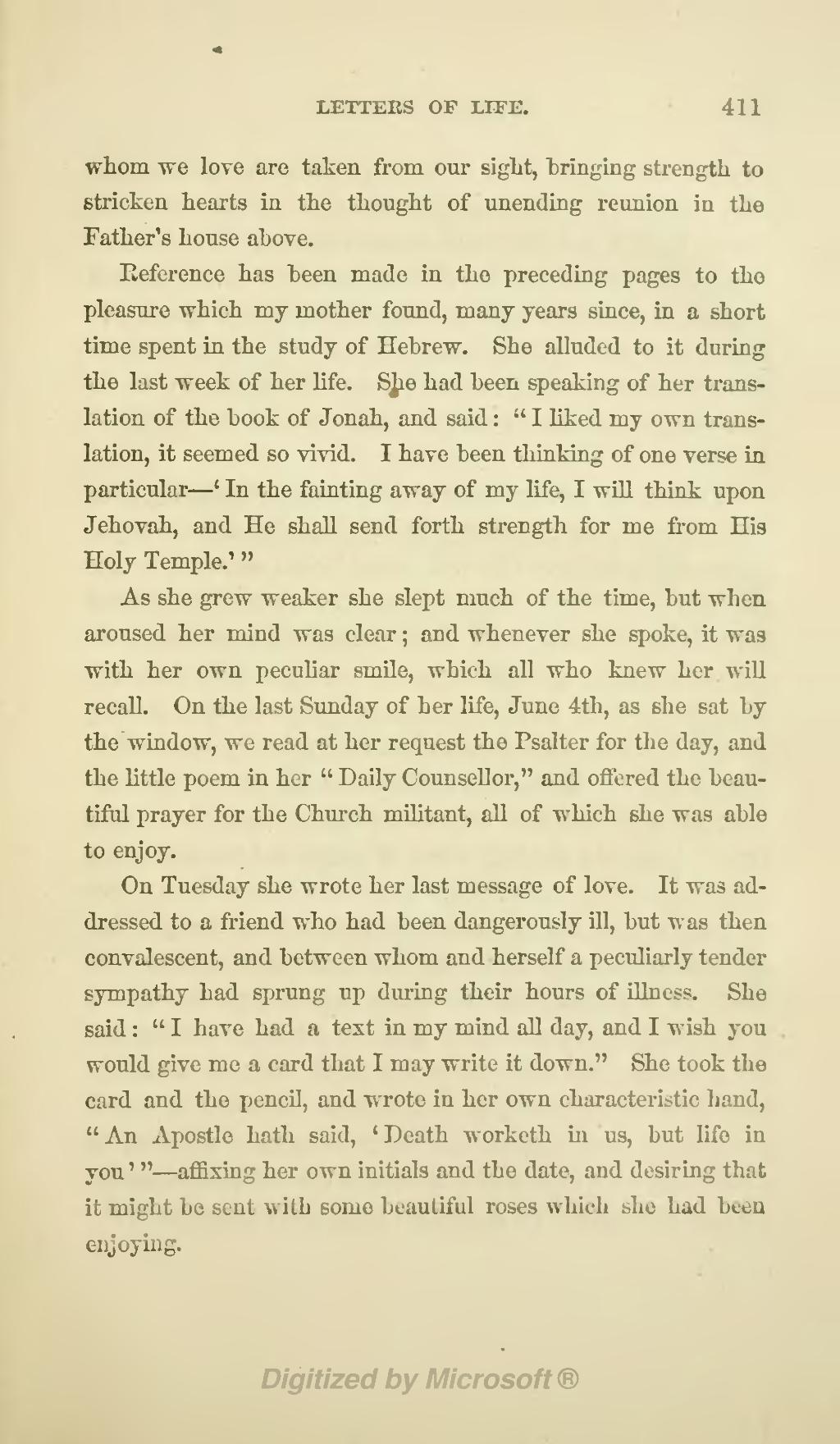whom we love are taken from our sight, bringing strength to stricken hearts in the thought of unending reunion in the Father's house above.
Reference has been made in the preceding pages to the pleasure which my mother found, many years since, in a short time spent in the study of Hebrew. She alluded to it during the last week of her life. She had been speaking of her translation of the book of Jonah, and said: "I liked my own translation, it seemed so vivid. I have been thinking of one verse in particular—'In the fainting away of my life, I will think upon Jehovah, and He shall send forth strength for me from His Holy Temple.'"
As she grew weaker she slept much of the time, but when aroused her mind was clear; and whenever she spoke, it was with her own peculiar smile, which all who knew her will recall. On the last Sunday of her life, June 4th, as she sat by the window, we read at her request the Psalter for the day, and the little poem in her "Daily Counsellor," and offered the beautiful prayer for the Church militant, all of which she was able to enjoy.
On Tuesday she wrote her last message of love. It was addressed to a friend who had been dangerously ill, but was then convalescent, and between whom and herself a peculiarly tender sympathy had sprung up during their hours of illness. She said: "I have had a text in my mind all day, and I wish you would give me a card that I may write it down." She took the card and the pencil, and wrote in her own characteristic hand, "An Apostle hath said, 'Death worketh in us, but life in you'"—affixing her own initials and the date, and desiring that it might be sent with some beautiful roses which she had been enjoying.
